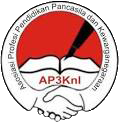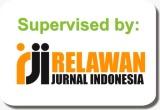Pedagogical Competence of Civic Education Teacher in 21st Century: A Systematic Literature Review
Abstract
Abstract
The objective of this study is to ascertain the standards for pedagogical proficiency among civic education teacher in the 21st century, as well as to identify approaches for enhancing their competency. The research method chosen is the Systematic Literature Review (SLR), which uses data from international and national journal articles. The findings indicate that (1) the essential competencies that Civic Education Teachers in the 21st century must possess include life and career skills, encompassing self-regulation, social interaction, and a culture of leadership, productivity, and responsibility; (2) The acquisition of learning and innovation skills, encompassing critical thinking, problem-solving abilities, effective communication, and collaborative engagement in creative endeavors and information sharing; (3) The acquisition of skills in information media and technology, encompassing both information technology and media abilities, is of paramount importance. Teachers must have a comprehensive understanding of information literacy, media literacy, and ICT literacy. Digital pedagogy is a strategy to improve the competence of 21st-century PPKn teachers. Digital pedagogy presents not only digital learning but also digital ethics in utilizing digital resources or learning media.
---------------------------------------
Abstrak
Penelitian menelaah standar kemahiran pedagogi di kalangan guru PPKn pada abad ke-21, serta mengidentifikasi pendekatan untuk meningkatkan kompetensi mereka. Metode penelitian yang dipilih adalah Systematic Literature Review (SLR) dengan sumber data terdiri dari gabungan artikel jurnal internasional dan nasional. Temuan menunjukkan bahwa: (1) kompetensi esensial yang harus dimiliki guru di abad 21 meliputi keterampilan hidup dan karir, meliputi pengaturan diri, interaksi sosial, dan budaya kepemimpinan, produktivitas, dan tanggung jawab, (2) perolehan keterampilan belajar dan inovasi, yang mencakup pemikiran kritis, kemampuan memecahkan masalah, komunikasi efektif, dan keterlibatan kolaboratif dalam upaya kreatif dan berbagi informasi, (3) perolehan keterampilan dalam media dan teknologi informasi, yang mencakup kemampuan teknologi informasi dan media, adalah hal yang sangat penting. Urgen bagi guru untuk memiliki pemahaman komprehensif tentang literasi informasi, literasi media, dan literasi TIK. Pedagogi digital hadir sebagai strategi upaya peningkatan kompetensi guru PPKn abad 21. Pedagogi digital tidak hanya menghadirkan pembelajaran digital, tetapi juga etika digital dalam menamfaatkan sumber daya atau sebagai media pembelajaran digital.
Keywords
Full Text:
DOWNLOAD FULL ARTICLE (PDF)References
Agustini, K., Santyasa, I. W., & Ratminingsih, N. M. (2019). Analysis of Competence on “TPACK”: 21st Century Teacher Professional Development. Journal of Physics: Conference Series, 1387, 1–9. https://doi.org/10.1088/1742-6596/1387/1/012035
Ananiadoui, K., & Claro, M. (2009). 21st Century Skills and Competences for New Millennium Learners in OECD Countries. In OECD Education Working Papers (Vol. 41). https://doi.org/10.1787/218525261154
Asdiniah, E. N. A. (2021). Urgensi dan Implikasi Pedagogik Kritis pada Pendidikan di Era Revolusi Industri 4.0. Jurnal Pendidikan Tambusai, 5(1), 1707–1712. Diambil dari https://jptam.org/index.php/jptam/article/view/1165
Astuti, A. P., Aziz, A., Sumarti, S. S., & Bharati, D. A. L. (2019). Preparing 21st Century Teachers: Implementation of 4C Character’s Pre-Service Teacher through Teaching Practice. Journal of Physics: Conference Series, 1233(1), 1–8. https://doi.org/10.1088/1742-6596/1233/1/012109
Bila, N. S., Wahyuni, F. D., Nurgiansah, T. H., Salsabila, N., Wahyuni, F. D., & Nurgiansyah, T. H. (2023). Peran Penting Civics: Pendidikan Ilmu Kewarganegaraan di Era Masyarakat Digital. Jurnal Kewarganegaraan, 20(1), 1–12. https://doi.org/10.24114/jk.v20i1.39530
Cahyani, N. M. W. S., Suwastini, N. K. A., Dantes, G. R., Jayantini, I. G. A. S. R., & Susanthi, I. G. A. A. D. (2021). Blended Online Learning: Combining the Strengths of Synchronous and Asynchronous Online Learning in EFL Context. Jurnal Pendidikan Teknologi dan Kejuruan, 18(2), 174–184. https://doi.org/10.23887/jptk-undiksha.v18i2.34659
Dangwal, K. L., & Srivastava, S. (2016). Digital Pedagogy in Teacher Education. International Journal of Information Science and Computing, 3(2), 67–72. https://doi.org/10.5958/2454-9533.2016.00008.9
Darling-Hammond, L. (2006). Constructing 21st-Century Teacher Education. Journal of Teacher Education, 57(3), 300–314. https://doi.org/10.1177/0022487105285962
Daryanto, & Syaiful, K. (2017). Pembelajaran Abad 21. Yogyakarta: Gava Media.
Djamarah, S. B. (2008). Guru dan Anak didik Dalam Interaksi Edukatif. Jakarta: Rineka cipta.
Good, T. L. (2008). 21st Century Education: A Reference Handbook. California: Sage publications.
Hamdani, A. D. (2021). Pendidikan di Era Digital yang Mereduksi Nilai Budaya. Cermin: Jurnal Penelitian, 5(1), 62–68. https://doi.org/10.36841/cermin_unars.v5i1.971
Hendriani, A. (2018). Pedagogik Literasi Kritis: Sejarah, Filsafat dan Perkembangannya di Dunia Pendidikan. Pedagogia: Jurnal Ilmu Pendidikan, 16(1), 44–59. https://doi.org/10.17509/pdgia.v16i1.10811
Hidayah, I. R., Kusmayadi, T. A., & Fitriana, L. (2021). Minimum Competency Assessment (AKM): An Effort To Photograph Numeracy. Journal of Mathematics and Mathematics Education, 11(1), 14. https://doi.org/10.20961/jmme.v11i1.52742
Kitchenham, B. (2004). Procedures for Performing Systematic Reviews. Keele: Keele University.
Munna, A. S., & Shaikh, M. S. I. (2020). Pedagogies and Practice: Online Teaching During COVID-19. International Journal of Humanities and Innovation (IJHI), 3(4), 132–138. https://doi.org/10.33750/ijhi.v3i4.96
Niu, S. J., Niemi, H., Harju, V., & Pehkonen, L. (2021). Finnish Student Teachers’ Perceptions of Their Development of 21st-century Competencies. Journal of Education for Teaching, 47(5), 638–653. https://doi.org/10.1080/02607476.2021.1951602
Peraturan Menteri Pendidikan dan Kebudayaan Nomor 16 Tahun 2007 tentang Standar Kualifikasi Akademik dan Kompetensi Guru.
Purfitasari, S., Masrukhi, M., Prihatin, T., & Mulyono, S. E. (2019). Digital Pedagogy sebagai Pendekatan Pembelajaran di Era Industri 4.0. Prosiding Seminar Nasional Pascasarjana, 2(1), 806–811. Diambil dari https://proceeding.unnes.ac.id/snpasca/article/view/374
Rahayuningsih, Y. S., & Muhtar, T. (2022). Pedagogik Digital Sebagai Upaya untuk Meningkatkan Kompetensi Guru Abad 21. Jurnal Basicedu, 6(4), 6960–6966. https://doi.org/10.31004/basicedu.v6i4.3433
Rahman, M. H. (2014). Professional Competence , Pedagogical Competence and the Performance of Junior High School of Science Teachers. Journal of Education and Practice, 5(9), 75–80. Diambil dari https://www.iiste.org/Journals/index.php/JEP/article/view/11868
Ramdhan, W., Nofriadi, N., & Dahriansyah, D. (2022). Masyarakat Bijak dalam Memanfaatkan Sosial Media di Era Society 5.0. Jurnal Pemberdayaan Sosial dan Teknologi Masyarakat, 1(2), https://jurnal.goretanpena.com/index.php/JPSTM/art. https://doi.org/10.54314/jpstm.v1i2.771
Santosa, H., Supadi, & Rahmawati, D. (2022). Certified Teacher’s Pedagogic Competence in 21st Century Skills. Journal of Education Research and Evaluation, 6(3), 475–483. https://doi.org/10.23887/jere.v6i3.49475
Siregar, R. A. (2020). The Effective 21st-century Pedagogical Competence as Perceived by Pre-service English Teachers. Pedagogy : Journal of English Language Teaching, 8(1), 1–12. https://doi.org/10.32332/pedagogy.v8i1.1953
Sulaiman, J., & Ismail, S. N. (2020). Teacher Competence and 21st Century Skills in Transformation Schools 2025 (TS25). Universal Journal of Educational Research, 8(8), 3536–3544. https://doi.org/10.13189/ujer.2020.080829
Toktarova, V. I., & Semenova, D. A. (2020). Digital Pedagogy: Analysis, Requirements and Rxperience of Implementation. Journal of Physics: Conference Series, 1691, 1–5. https://doi.org/10.1088/1742-6596/1691/1/012112
Trilling, B., & Fadel, C. (2009). 21st Century Skills: Learning for Life in Our Times. San Francisco: John Wiley & Sons.
Tuah, Y. A. E., Sudira, P., Mutohhari, F., Mustafa, W., & Kusuma. (2021). The Competency of Pedagogic and Professional of Vocational Teachers in Implementing 21st Century Skill-Based Learning. Jurnal Pendidikan Dan Pengajaran, 54(2), 244–254. https://doi.org/10.23887/jpp.v54i2
Undang-Undang Republik Indonesia Nomor 14 Tahun 2005 tentang Guru dan Dosen.
Undang-Undang Republik Indonesia Nomor 20 Tahun 2003 tentang Sistem Pendidikan Nasional.
van Laar, E., van Deursen, A. J. A. M., van Dijk, J. A. G. M., & de Haan, J. (2019). Determinants of 21st-century Digital Skills: A Large-scale Survey Among Working Professionals. Computers in Human Behavior, 100, 93–104. https://doi.org/10.1016/j.chb.2019.06.017
Wahono, R. S. (2015). A Systematic Literature Review of Software Defect Prediction. Journal of Software Engineering, 1(1), 1–16. Diambil dari https://journal.ilmukomputer.org/index.php?journal=jse&page=article&op=view&path%5B%5D=47
Wright, R. W., Brand, R. A., Dunn, W., & Spindler, K. P. (2007). How to Write a Systematic Review. Clinical Orthopaedics and Related Research, 455, 23–29. https://doi.org/10.1097/BLO.0b013e31802c9098
DOI: https://doi.org/10.24114/jk.v21i2.53446
Article Metrics
Abstract view : 170 timesDOWNLOAD FULL ARTICLE (PDF) - 89 times
Refbacks
- There are currently no refbacks.
Copyright (c) 2024 Maryatun Kabatiah, Abdinur Batubara, Taufiq Ramadhan, Fazli Rachman

This work is licensed under a Creative Commons Attribution-ShareAlike 4.0 International License.




.png)





